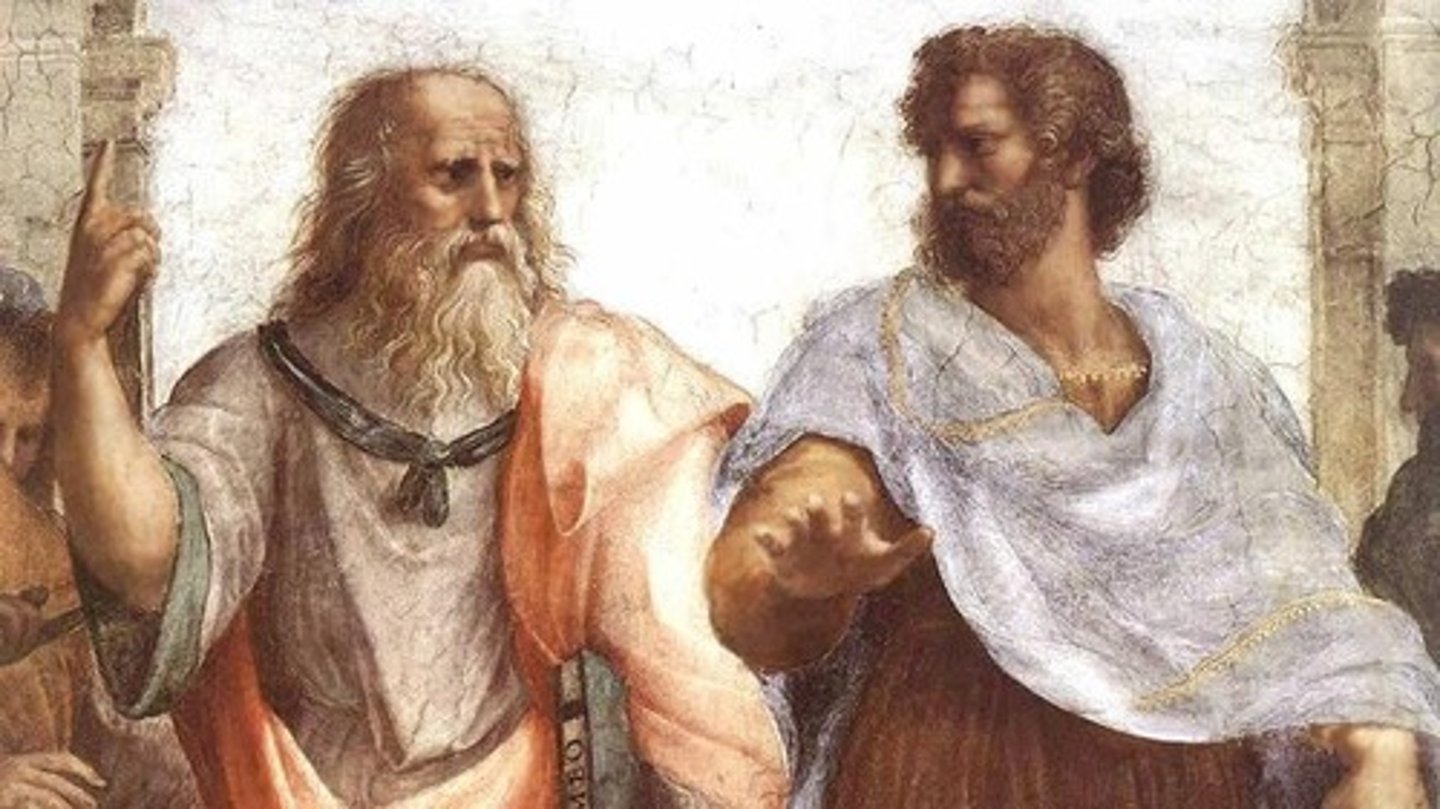Foundational Political Ideas: Hobbes, Locke, and Aristotle on Government and Civil Society
1/36
There's no tags or description
Looks like no tags are added yet.
Name | Mastery | Learn | Test | Matching | Spaced | Call with Kai |
|---|
No study sessions yet.
37 Terms
Aristotle
Philosopher who categorized governments into types based on their rule for the common good or private good.

Monarchy/Kingship
A form of government ruled by one for the common good.
Tyranny
A form of government ruled by one for private good.
Aristocracy
A form of government ruled by a few for the common good.
Oligarchy
A form of government ruled by a few for private good.
Polity
A form of government ruled by many for the common good.
Democracy
A form of government ruled by many for private good, often referred to as mob rule.
State of Nature (Hobbes)
Described by Hobbes as a State of War where life is solitary, poor, nasty, brutish, and short.
Leviathan
The state to which individuals give up all rights in exchange for security according to Hobbes.
State of Nature (Locke)
Described by Locke as governed by the Fundamental Laws of Nature, where individuals give up only two rights to form civil society.
Fundamental Laws of Nature
The principles that govern the State of Nature according to Locke.
Civil Society
Formed when individuals give up certain rights to protect their lives, liberties, and possessions under the rule of law.
Right to Rebel (Hobbes)
According to Hobbes, people do not have the right to rebel against the government.
Right to Rebel (Locke)
According to Locke, people have the right and duty to rebel against oppressive government.
Government's Role (Hobbes)
Must provide security to its people and supervise all religious and intellectual publications.
Government's Role (Locke)
Must be tolerant of religious differences and cannot permanently give up its lawmaking powers.
Emphasis of Hobbes
Power and security.
Emphasis of Locke
Protection of life, liberty, and possessions.
Influence of Hobbes and Locke
Both have significantly influenced American political thought and culture pertaining to government.
Aristotle's Types of Government
Categorized into good and bad forms based on their focus on common or private good.
State of Nature Characteristics
Insecure internally and externally, leading to a State of War.
Problem in State of Nature (Hobbes)
Security issues leading to a life described as solitary, poor, nasty, brutish, and short.
Lockean
Influence on U.S. Domestic Politics.
Hobbesian
Influence on U.S. Foreign & Defense Politics.
Civil Government
Formed within the context of civil society to protect our lives, liberties, and possessions.
Legislature
Must be supreme in making laws and must never permanently give up law making powers.
Rule of Law
Predictability through a known and established law.
Sovereignty
The ability to enforce the law; monopoly of state power.
Oppressive Government
According to Locke, it is the right and duty of individuals to restore civil government.
Revolution
The act of restoring civil government, as in The American Revolution.
Sovereign
The U.S. Constitution by way of the consent of the people.
Type of Government
Federal Republic, sometimes called a Democratic Republic.
State of Nature
Concept regarding government; Hobbes and Locke differ on their respective concepts.
Rights Given Up
Hobbes and Locke discuss how many rights people give up to leave a state of nature and establish government.
Supreme Branch
In a civil society, the legislature is supreme regarding making laws.
9th Amendment
Addresses rights given up by people.
Influence on Policies
Hobbes and Locke influenced U.S. domestic and foreign & defense policies, respectively.